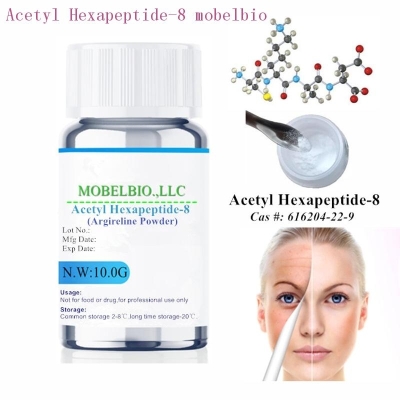Antimicrobial peptides in Mycobacterium tuberculosis phage
-
Last Update: 2013-05-28
-
Source: Internet
-
Author: User
Search more information of high quality chemicals, good prices and reliable suppliers, visit
www.echemi.com
A research group led by Lai Ren, a researcher of Kunming Institute of zoology, Chinese Academy of Sciences, identified a small molecular polypeptide from Mycobacterium tuberculosis phage The antimicrobial peptide is expected to be an adjuvant in the treatment of tuberculosis infection, or as a template for the development of anti tuberculosis drugs The results were published in the Journal of the Federation of American Societies of experimental biology According to reports, tuberculosis is caused by the major human pathogen, Mycobacterium tuberculosis, and one third of the world's population has been infected with Mycobacterium tuberculosis Tuberculosis is the second leading cause of single factor infectious diseases, with nearly 2 million deaths and 9 million new infections each year In recent years, a variety of drugs that can effectively control tuberculosis, such as isoniazid, rifampin, pyrazinamide and ethambutol, have been widely used in clinical practice However, the emergence of a large number of multidrug-resistant and extensively drug-resistant strains of Mycobacterium tuberculosis has brought serious difficulties to the treatment of tuberculosis Therefore, it is urgent to develop new anti TB drugs to overcome the drug resistance of TB Phage, as a kind of true bacterial virus, can effectively interact with host bacteria Therefore, Lai Ren's team speculated that TB phages could produce related functional substances, interact with TB, and even directly inhibit or kill TB "We have identified a small peptide pk34 from Mycobacterium tuberculosis phage, which can specifically bind the most abundant sugar ester on the surface of Mycobacterium tuberculosis Glycosyl ester is called the core factor of Mycobacterium tuberculosis Injection of glycosyl ester into tail vein of mice can simulate a series of immune pathological reactions in lungs after Mycobacterium tuberculosis infection Therefore, sugar ester is an important target for the development of anti tuberculosis drugs " At the same time, pk34 has the ability to kill Mycobacterium tuberculosis and anti-inflammatory, Lai said In vivo antituberculosis animal model test showed that pk34 had the same ability to eliminate Mycobacterium tuberculosis as rifampin Pk34 can inhibit the activation of mitogen activated protein kinase and protein kinase B, so as to inhibit the secretion of inflammatory factors, and maintain a certain level of inflammatory cytokines to maintain the normal immune capacity of experimental animals.
This article is an English version of an article which is originally in the Chinese language on echemi.com and is provided for information purposes only.
This website makes no representation or warranty of any kind, either expressed or implied, as to the accuracy, completeness ownership or reliability of
the article or any translations thereof. If you have any concerns or complaints relating to the article, please send an email, providing a detailed
description of the concern or complaint, to
service@echemi.com. A staff member will contact you within 5 working days. Once verified, infringing content
will be removed immediately.







